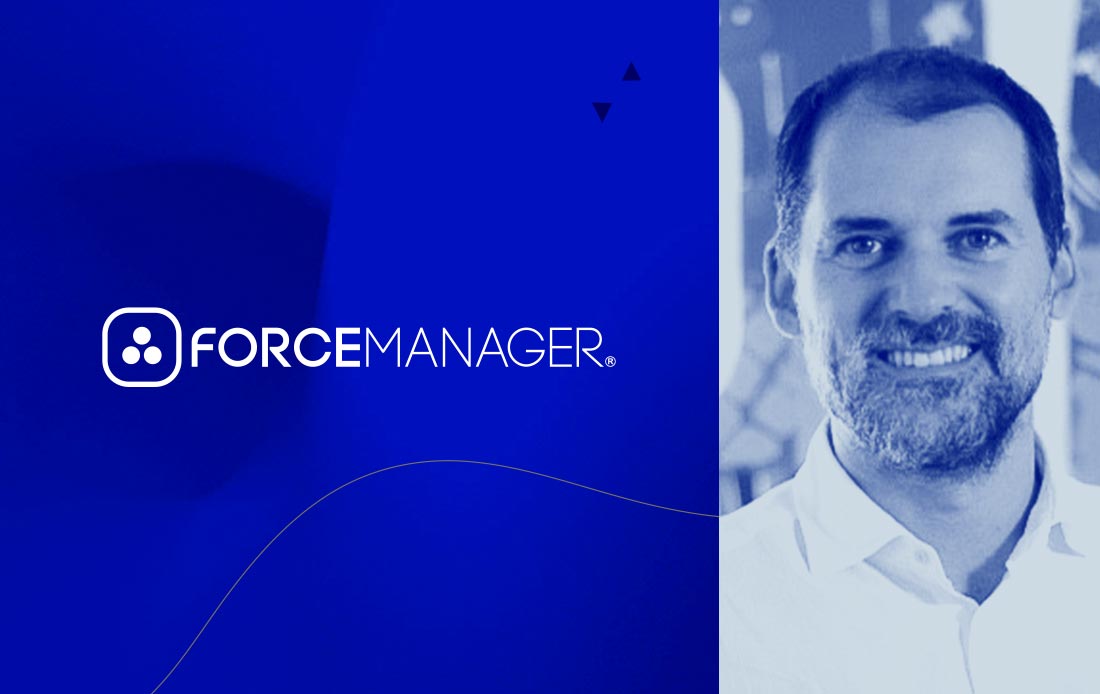
Oscar Macia,
Founder of ForceManager
In today’s competitive landscape, what do you believe is the unique factor that differentiates ForceManager from other players in the sales enablement industry?
In recent years, we’ve transitioned from enterprise to mid-market. We’ve found that one of the significant challenges mid-market companies face is encouraging CRM adoption among their users, especially sales reps who are often reluctant to use tech tools.
Our target customer isn’t necessarily tech-savvy. Many times, they’re industrial companies. For them, ease of use is critical for CRM implementation success.
Our primary competitive advantage is bringing the simplicity of a small business CRM to a mid-market company that requires more in terms of configuration and security standards but not to the extent of enterprise-level needs. We’ve achieved a balance – a solution that’s intricate enough to satisfy administrative requirements and simple enough to ensure user adoption. Our expertise in mobility has also been instrumental, as it engages the end user more, many of whom are more comfortable using their smartphones.
The introduction of AI further solidifies our mission, offering myriad use cases that enhance and simplify the CRM experience for SMBs.
ForceManager’s track record in helping companies achieve better sales results is impressive. Could you share a compelling example of how your solution transformed a client’s sales processes and outcomes?
Our solutions offer companies clarity on their team’s customer engagement patterns, tracking emails, geolocated visits (which we term “checkins”), CRM-reported activities, calendars, and more.
This results in a dashboard for sales managers that puts them in control of sales activities and helps them gauge the execution of their strategies.
For instance, a company in the beauty and cosmetics sector, which sold shampoos to salons, was facing challenges in ensuring visits and interactions aligned with their segmentation strategy. By implementing ForceManager, they increased their order ratio by over 15% per visit and boosted the number of visits by about 20% within just two months. The transparency and clarity we provide are crucial.
Technology is constantly evolving, and sales enablement solutions must keep up with these advancements. How does ForceManager stay ahead in terms of innovation and incorporate cutting-edge technologies into its platform?
AI is revolutionizing the sales tech world. As highlighted by McKinsey’s recent reports, the clearest revenue potential lies in AI applied to sales tech.
With this insight, we’re weaving AI throughout our product to optimize various use cases – from summarizing complex data for sales managers to AI-assisted chat to help sales reps prepare for visits.
Ensuring our relevance means staying abreast with AI advancements. We’ve set up a dedicated product team for this transition, and as the CEO, I’m spearheading this transformation across all organizational levels, pushing everyone to leverage AI’s immense potential.
As the Founder and CEO, you have led the company through its various stages of growth. What strategies have you employed to maintain a customer-centric culture within ForceManager as the company expands?
Maintaining a customer-centric focus, especially amidst rapid growth, is vital. Occasionally, tech companies can prioritize growth at the expense of aligning with customer goals. To prevent such misalignments, one of our core values is “Users are First.” This keeps everyone oriented towards our customers and users.
We monitor tool usage, and NPS is fundamental to our approach. In essence, clear values and key performance indicators guide us.
Scalability is a challenge for many growing companies. How has ForceManager tackled this challenge to continue providing high-quality services to an expanding customer base?
Scalability is a universal challenge for all scaleups. On the operational front, our approach is to streamline our product, ensuring it’s as straightforward to set up as possible.
We’ve focused on productizing much of the setup process, positioning our product to be efficiently set up by partners.
A strategy that has particularly benefited us is treating our professional services team as another partner (we call it partner 0), and they should be able to onboard customers and configure everything with minimal support from our product and technical departments.
On the sales front, collaborating with partners has been immensely effective in optimizing costs and maintaining the Customer Acquisition Cost (CAC) during our growth phase.
Looking to the future, what exciting developments or expansions can we expect from ForceManager in the next few years, and how will they benefit both existing and potential clients?
We’re strategically partnering with companies offering complementary products to expand our reach. To achieve this, we’re refining our product, making it even more user-friendly. On the product front, we’re broadening ForceManager’s features to serve a wider range of company needs, such as incorporating more marketing and after-sales features.
AI continues to play a significant role in our product development, enhancing our speed and efficiency across all levels. It’s an exciting time for product companies like ours!



